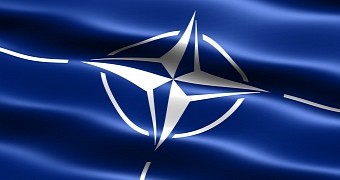The North Atlantic Treaty Organization (NATO) warned that the recent WannaCry and Petya ransomware attacks could trigger Article 5 of the North Atlantic Treaty, explaining that responses to whoever launches such cyber operations could be in the form of military means.
NATO says there are signs that both WannaCry and Petya were created by state-sponsored hackers, explaining that if a cyber-attack causes consequences comparable to an armed attack, then members can apply the law of armed conflict.
This isn’t the case just yet, Tomáš Minárik, researcher at NATO CCD COE Law Branch, explained, though the aforementioned statement was clearly a warning to nations who might be involved in similar ransomware attacks.
“There is a lack of a clear coercive element with respect to any government in the campaign, so prohibited intervention does not come into play. As important government systems have been targeted, then in case the operation is attributed to a state this could count as a violation of sovereignty. Consequently, this could be an internationally wrongful act, which might give the targeted states several options to respond with countermeasures,“ Minárik said.
State-sponsored attacks
NATO officials say there’s evidence both WannaCry and Petya were launched by a state actor, with the latter involving exploits that received several improvements to “create a new breed of ultimate attack.”
“Among all new features, the malware has been more professionally developed in contrast with sloppy WannaCry, and instead of scanning the whole Internet it is more targeted and searches for new hosts to infect deeper on local computer networks once initial breach has occurred,” Bernhards Blumbergs, researcher at the NATO CCD COE Technology Branch, said.
NATO security experts explain that Petya was mostly “a declaration of power,” with Lauri Lindström, researcher at NATO CCD COE Strategy Branch, saying that the second ransomware attack was only supposed to be a “demonstration of the acquired disruptive capability and readiness to use it.”
WannaCry and Petya infected thousands of computers, with the latter being mostly aimed at organizations and business worldwide. Ukraine was said to be one of the biggest victims of Petya, with thousands of systems going down, including those at the Chernobyl plant.

 14 DAY TRIAL //
14 DAY TRIAL //